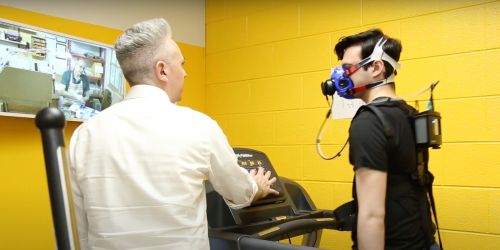
Engineering Center for Diabetes Research and Education (ECDRE)
More in Engineering Center for Diabetes Research and Education (ECDRE)
The Engineering Center for Diabetes Research and Education (ECDRE) is the first engineering center in the United States to focus on the treatment and cure of diabetes. Illinois Institute of Technology faculty members, in collaboration with faculty, medical investigators, and clinicians at the University of Chicago, University of Illinois Chicago, Rush University, and Argonne National Laboratory, are working on a variety of diabetes-related research projects. Established in 2005, ECDRE's initial focus has been on biomaterials, vascular research, and education. Over time, its activities have expanded to the development of artificial pancreas (automated insulin delivery) systems; modeling the effects of physical activities, acute psychological stress, and sleep irregularities on metabolism and glucose concentration; wound healing; drug delivery; adipose tissue; and psycho-social and behavioral factors in the lives of people with diabetes. ECDRE is a component of the Pritzker Institute of Biomedical Science and Engineering.
Faculty at Illinois Tech are investigating many areas of diabetes, from cause to cure. Some of the current research is aimed at biomaterials for vascularization and drug delivery; vascular diseases and wound healing; fully-automated multivariable artificial pancreas systems to mitigate the effects of meals, physical activities, and stress on blood glucose levels; modeling the glucose-insulin-glucagon dynamics in people with diabetes; advanced simulators with virtual patients with diabetes; digital twins of people with diabetes; machine learning and artificial intelligence for detection and classification of people with diabetes from electronic health records; therapies with sodium-glucose co-transporter 2 (SGLT2) inhibitors and glucagon-like peptide-1 (GLP1) receptor agonists; diabetic ketoacidosis; microfluidics; microfabrication to engineer tissues and develop sensors to better understand metabolic diseases; beiging of adipose tissue; eating pathology and behavior modification; and educational tools and software.

